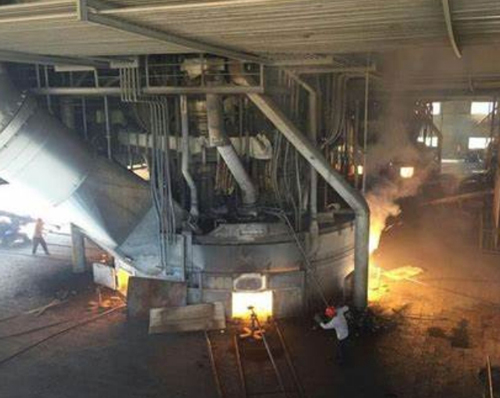
A key ingredient in aluminum production is calcined petroleum coke, or CPC. Petcoke is produced by refinery coker machines that separate residual fuel oil into lighter components to be used as diesel and gasoline. The residue used in the production of the anodes, which are critical to the aluminum-making process, is the sole commercially available source. CPC consumption is driven by the aluminium industry. This sector accounts for over 80%. CPC is also used in the steel, chemical and fuel industries.
CPC can also be explored as a fuel source for the development of fuel cells. These generate electricity using a chemistry reaction between oxygen & hydrogen. CPC's potential could lead to an increase in demand, especially over time.
In terms of application, the calcined petrol coke market has been divided into segments. Aluminium and steel industries account for a significant portion of demand. In aluminium, anode grade coke is required for the smelting process. Needle coke (used to make graphite electrodes) is needed in the steel sector. The growth of these sectors is expected to drive the calcined petcoke market over the forecast period.

A by-product from petroleum refinement, green petroleum is used as the primary raw material to produce calcined oil coke. The coke, which is a by-product of petroleum refining, is heated using a coke calculator to eliminate volatile substances and moisture as well as to improve electrical conductivity. In the Hall-Heroult process of aluminum smelting, coke serves as anode materials. It is important that the anodes are able to conduct electricity. This requires a very high purity. It is possible to meet this requirement because calcined carbon has a low level of impurities.
Vibration Bulk Density testing is an essential part of any laboratory's services. It is often used to test calcined petroleum sludge. The density of a sample is measured by this test, and it affects the resistance to impact and abrasion. This test is also used to assess the general physical characteristics of the coke.
Quality calcined coal is low sulfur, and it has a specific gravity of 2.65. Black and brittle with a dull, porous appearance. It's a vital ingredient in aluminium, steel, as well as paints, pigments, bricks and glasses, fertilisers. Test results for calcined oil coke help customers determine if the material is suitable for their application. The reports can also be used in business transactions and to determine plant operations. They are useful for allocating costs, as well. They also form the basis of quality assurance and control programs at major producers. These quality controls can be used to monitor and improve the performance of a facility's calcined coke calcining equipment. In turn, this leads to better product quality and lower costs.

Write a Message